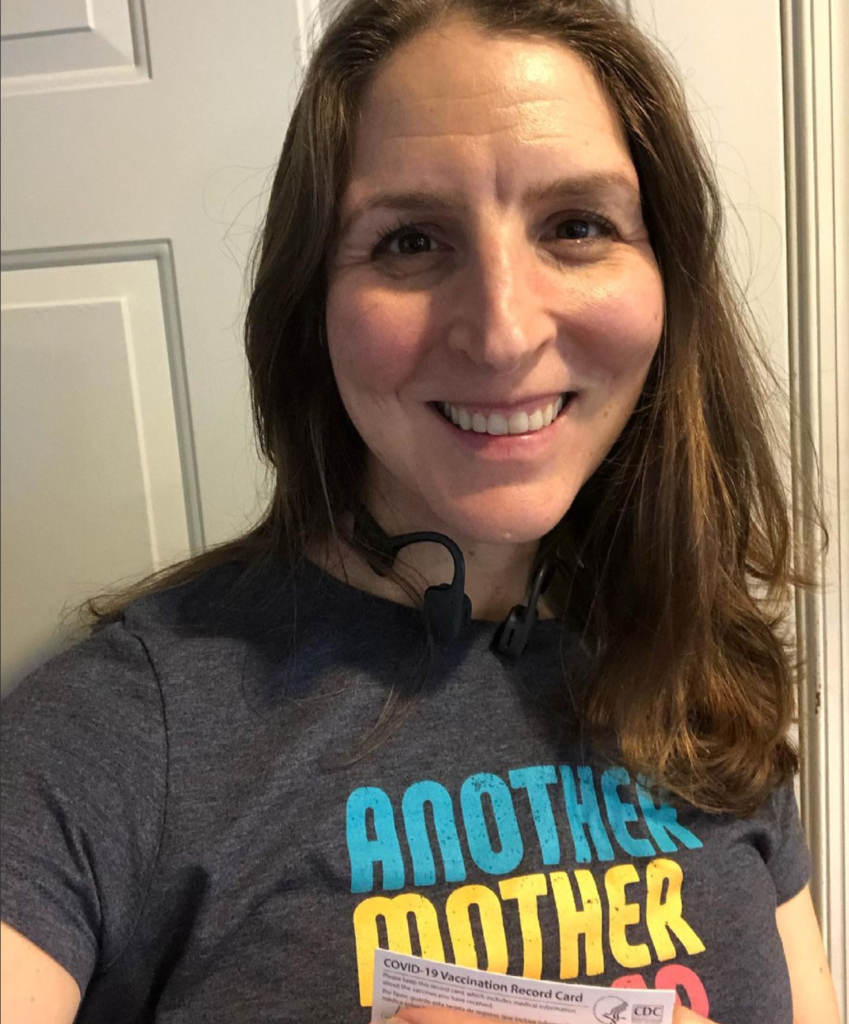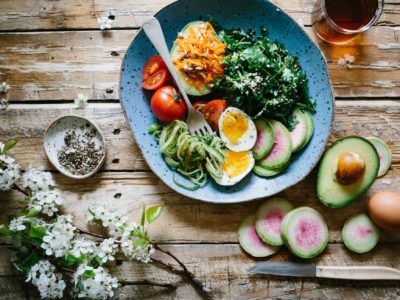Maintaining the responsibilities of college comes as a challenge. Add on the weight of wanting to develop healthy habits while away from home and you get a potential recipe for disaster. If you don’t come equipped with the right knowledge, deciding to lead a healthier life while away from home can seem scary and confusing. Luckily, Penn State University offers different programs and professionals that can assist in making healthy living in college easier. So, developing or keeping up with healthy habits in school doesn’t need to feel intimidating or confusing after all.
Read on to learn how to maintain a healthy lifestyle as a college student from Penn State University’s Dietitian, Kelly Hoffheins.

Q: For students just getting into a better way of living, why is college a good place to start?

KH: For many students, it may be the first time they are on their own and responsible for their own food shopping, preparing and cooking. This is a great time to start healthy habits that will continue into their adult lives.
Q: Is there a specific balance of food every meal should have?
KH: Generally, I encourage students to include carbohydrate foods (grains, fruits, milk, yogurt), protein foods (meats, poultry/eggs, fish/seafood, tofu, beans/lentils) and fat/lipid foods (oils, nuts, seeds, avocados etc.) in a meal. One way to achieve this is setting up a plate that is at least ¼ grains, ¼ protein and ½ plate fruits/veggies. The dining halls usually have these components available, especially if a student is open to a variety of options in each of these categories.
Q: What is an example of a perfect day of healthy living for a PSU student?

KH: I tell my students that their eating and movement does not need to be perfect. Even if there was a perfect day that would also look a bit different for each person. Overall, I encourage striving for fueling their body at regular intervals. The timing varies, but for most, this may mean every 3-4 hours. Additionally, I encourage students to use the balanced plate I described earlier and eat mindfully while listening to their internal hunger and fullness cues to guide them with the amounts of food they need. I also encourage students to spend some time each day practicing joyful movement.
Q: What services are available to students on campus who are looking to clean up their diet?
KH: I work within the department of Health Promotion and Wellness here at Penn State. The bulk of my role as a Registered Dietitian in this department is providing individual nutrition counseling services to students. This service is included in a student’s tuition and there is no additional cost to the student. We also provide nutrition related programming around campus. I would encourage students to take advantage of these services if they’re looking for help with their eating.
Q: What is your definition of healthy food and how can students at PSU access it?

KH: A variety of foods is usually the healthiest. These foods mostly include whole grains, plenty of fruits and vegetables, dairy or alternative calcium or vitamin D sources, lean proteins, and oils. However other types of foods can fit into a healthy diet as well and can provide other types of value besides just nutrients. A couple examples might include, sharing food with our friends which may provide us with social benefits or feeling more satiated and satisfied because we listened to what our bodies really wanted and ate a cookie instead of that extra vegetable serving.
Q: What are the three biggest misconceptions students have about healthy eating or exercise?

KH: I hear lots of misconceptions. I think the following misconceptions are the top ones I address often:
- You need to lose weight to be healthy. Evidence shows health promoting behaviors (eating balanced meals, good sleep, reduced stress and joyful movement) are more important for good health rather than achieving a certain weight. Engaging in restrictive eating can cause more negative health impacts and harm than good.
- Carbs and convenience foods are bad. There are no good or bad foods, all foods can fit into a healthy diet. Humans usually need at least 50% of their diet to come from carbohydrates. Frozen, canned or other “convenience foods” are not bad either. These can sometimes be a helpful tool to help a person get more variety and eat more fruits/vegetables.
- Eating late at night is bad. Not necessarily. A person’s schedule may be shifted, and they may start their day later and go to bed later and therefore may need a meal or snack later in the day. Its best to honor your hunger (rather than eating or not eating by the clock) and many students need 3 meals plus additional 2-3 snacks in order to meet their nutritional needs.
Q: What are some common themes you see among “unhealthier” students you meet with, and how do you help them break those bad habits?
KH: One of the most common themes is being too restrictive with their diet and/or skipping meals. I encourage students to eat regularly throughout the day and try to listen to and respond to their body’s internal cues for hunger and fullness.
Q: How important is it for students to exercise in addition to their daily walks to class?

KH: The amount of walking varies a lot between students. Many students are already walking 30-60 minutes a day just to get around to classes, meetings etc. In many cases, this is sufficient for overall health. It would depend on the students’ goals and what they can manage with their schedule, but it may be valuable to add in some strength and mobility work to keep their activity balanced with more variety. If a student is not doing much walking to classes, then it is going to be more important for them to find an activity they enjoy and can do regularly. This does not necessarily mean they need to go to a gym, but that can be a good option.
You can turn healthy living into a reality if you wish to make the change. The journey doesn’t need to consist of constant letdowns and salads for breakfast, lunch and dinner. You can work towards your goal all while moderately enjoying the foods and exercise you like. With a little determination, drive and focus you will get to where you can reach your goals in your healthy living journey in no time.



















